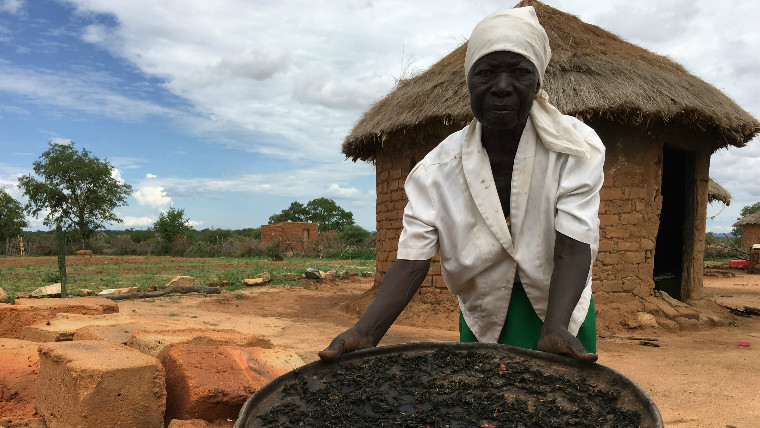Children most at risk as Zimbabwe says 4 million need food aid due to drought
World Vision has called for more funding to address food shortages across Southern Africa as the government of Zimbabwe announced that more than a third of the country's population need food aid as people struggle with the worst drought for two decades.
An El Nino induced-drought has hit Zimbabwe hard and last month it appealed for $1.6 billion in aid to help pay for grain and other food. The government of the southern African country this week admitted that the number of people requiring food aid has risen to 4 million, up from 3 million initially projected at the beginning of February when President Robert Mugabe declared a “state of disaster”due to drought.
Beatrice Mwangi, the World Vision Southern Africa region resilience and livelihoods director said: "Thousands of children in Zimbabwe and across Southern Africa are slipping into malnutrition and death. Many are not going to school due to hunger and this represents a big loss to the communities and countries across the region. If we do not see a positive response in funding, we may see even more children malnourished or dying.”
The U.N.'s children's agency, yesterday (Tuesday 15 March) said Zimbabwe is facing its worst malnutrition rates in 15 years due partly to drought caused by the El Nino phenomenon. According to UNICEF, 33,000 children in Zimbabwe —mostly aged 1 to 2 years old —need urgent treatment for "severe acute malnutrition."
Mwangi explained: “The increase to the estimated 4 million is as a result of the end of support by the development partners who had secured funding for the lean period between December and March. However the shortages are still severe and are likely to go beyond the current cropping season. The response to this current crisis from a donor-perspective has been a bit slow. There is still a huge funding shortfall in terms of resources that are required and we all know that a delayed response usually leads to spending more money trying to rectify the emergencies. We also know that many children across Southern Africa have high levels of stunted growth due to poor diets and food shortages meaning this crisis may in future lead to us seeing a generation that is unable to perform to its fullest potential. It’s like losing an entire generation.”
According to an announcement by the Zimbabwean government in the media this week, state stocks of maize - the staple food - were 91,326 tonnes as of March 10 - enough to last only three months. The end of funding support by the Zimbabwean government’s development partners who had secured funds for the country has been attributed as the cause for the rise in he number of people needing food. Zimbabwe has also seen harvests devastated and food prices soar with the WFP reporting that food production has halved compared to last year and maize is 53% more expensive.
17-year-old Clement Ndlovu who lives in rural Matobo and has been out of school for the past two years due to lack of tuition fees and food shortages said: “I’m one of many young people who have been out of school because of the prolonged drought. We now just stay at home waiting for someone to help us. We used to look after our grandparents’cattle and livestock but they are dying because the pastures are fast drying and there is no water for them as the rivers have dried up as well.”
World Vision has been providing villagers in rural Zimbabwe with cash vouchers, and food aid while the charity’s flagship Improving Girls’Access through Transforming Education (IGATE) is supporting over 100 000 marginalised girls from over 460 schools located in four provinces in Zimbabwe.